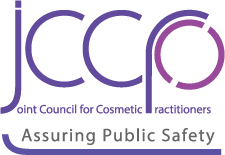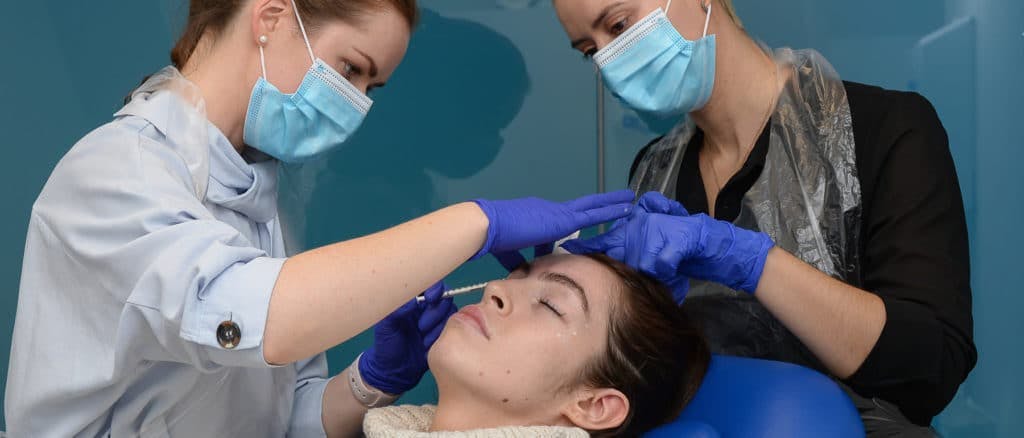Update On JCCP Aesthetics Regulation Plans

The Joint Council of Cosmetic Practitioners (JCCP) is focussed on working towards better aesthetics regulation across the UK industry. It is a self-regulating body for non-surgical aesthetics with Professional Standards Authority (PSA) and charitable status.
Many areas of aesthetic medicine are currently largely unregulated in the UK. For instance, at present there are no mandatory best practice and competency standards for injectors.

The JCCP aims to improve patient safety by raising standards and minimum qualification requirements, alongside successful monitoring of aesthetics practitioners, premises, products and devices.
It exists to improve public safety by identifying areas where the industry can improve, then making these changes happen. This can involve working with other bodies, lobbying politicians and raising public awareness.
The JCCP has been making a concerted push towards meaningful change in the aesthetics field this year. Here are a few of the initiatives they have recently announced…
10 Point Plan gets positive reception
On 16 March 2021 the JCCP published its 10 Point Plan. This set out its action points for regulating the UK aesthetics industry. The JCCP has now announced that this aesthetics regulation plan has been well received.
A 19 April update in Healthcare Magazine outlined how the 10 Point Plan had prompted over 400 responses from individuals and organisations.
JCCP chair Professor David Sines told the publication its plan had clearly “hit the right note”.
“We have been seeking feedback which means we are able to take a sense-check and beyond doubt it has been amazingly consistent and supportive of the plan,” he added.
JCCP to work together with MHRA

This positive update follows the news that in April 2021 the JCCP signed a memorandum of understanding with, UK government body, the Medicines and Healthcare products Regulatory Agency (MHRA).
By joining forces in a more formal way, the two agencies will be able to improve their collaborative efforts. The JCCP press release advises that these include “the promotion of safer medical devices and medicines and examples of best and safe practice within the aesthetic industry.”
MHRA Safety and Surveillance Group Manager of the Devices Division, Janine Jolly said of the pairing, “We are very pleased to have formalised our collaborative efforts with the JCCP to further our commitment to public safety. Together, we will work to support the promotion of good practice and the protection of consumer safety in aesthetics.”
JCCP Registers

Knowing where to find or check if an aesthetics practitioner is properly qualified can be a minefield for the public. This can also be the case for individuals wanting to get into injectables or cosmetic dermatology, who are looking for high quality, accredited aesthetic medicine training courses.
As such, the JCCP offers the public free register resources via its Practitioner Register and its Register of Approved Education and Training Providers.
It divides the Practitioner Register into two parts – one for health care practitioners registered with a JCCP recognised Professional Regulated Statutory Body (PSRB) and one for non-health care practitioners who are not registered with a PSRB. This separates the medical aesthetics professionals from those without medical qualifications.
Harley Academy’s gold standard injectables training course, the Level 7 Diploma in Botox and Fillers, is recognised by the JCCP and Ofqual. As such, our students can join the JCCP while they are trainees. This allows patients to find you and see that you have proven to be sufficiently capable of providing safe and effective treatments.
To find out more about joining the Trainee or Practitioner Register, visit the JCCP website.
All information correct at the time of publication.
Download our full prospectus
Browse all our injectables, dermal fillers and cosmetic dermatology courses in one document
By submitting this form, you agree to receive marketing about our products, events, promotions and exclusive content. Consent is not a condition of purchase, and no purchase is necessary. Message frequency varies. View our Privacy Policy and Terms & Conditions
Attend our FREE open evening
If you're not sure which course is right for you, let us help
Join us online or in-person at our free open evening to learn more
Our Partners














STAY INFORMED
Sign up to receive industry news, careers advice, special offers and information on Harley Academy courses and services

